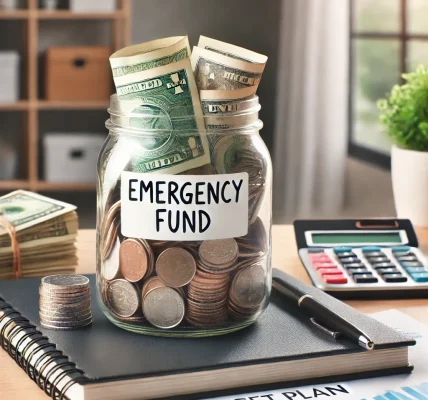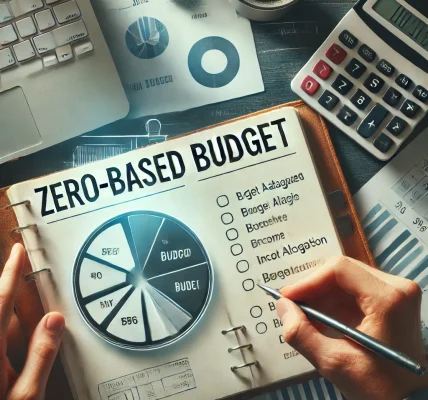In today’s digital age, budgeting apps have revolutionized the way people manage their finances. For investors, these apps not only offer a comprehensive view of their financial health but also provide valuable tools to optimize investment strategies. By using budgeting apps, you can track expenses, monitor cash flow, and set aside funds for future investments systematically. This guide will explore how budgeting apps can enhance your investment journey while providing practical tips on selecting and utilizing these tools effectively.
Why Budgeting Matters for Investment Success
Budgeting is the foundation of a successful investment plan. Without a clear understanding of your income and expenses, it becomes challenging to allocate funds towards your investment goals. Budgeting apps simplify this process by providing real-time insights into your spending patterns and allowing you to identify areas where you can save and invest more.
Key Benefits of Using Budgeting Apps for Investors:
- Financial Transparency: Gain a holistic view of your financial situation.
- Automated Tracking: Automatically categorize and monitor your income and expenses.
- Goal Setting: Set and track specific investment goals.
- Expense Reduction: Identify unnecessary spending to boost savings.
- Data-Driven Decisions: Use analytics to make informed investment choices.
Top Features to Look for in a Budgeting App
When choosing a budgeting app for investment tracking, prioritize features that align with your financial needs. Here are the most important functionalities to consider:
- Expense Categorization: Automatically sort transactions into categories (e.g., housing, transportation, entertainment).
- Goal-Based Saving: Create and track specific financial goals such as retirement savings, emergency funds, or investment portfolios.
- Bank Integration: Connect seamlessly to your bank accounts, credit cards, and investment platforms for real-time tracking.
- Investment Tracking: Monitor the performance of your stocks, mutual funds, ETFs, and other investments.
- Reports and Insights: Access detailed reports and visual analytics to identify spending patterns and savings opportunities.
- Security and Privacy: Ensure the app offers advanced encryption and multi-factor authentication to protect your financial data.
How Budgeting Apps Enhance Your Investment Journey
Budgeting apps play a crucial role in maximizing your investment potential. Here are ways they can directly impact your financial growth:
1. Improved Cash Flow Management
By tracking every dollar earned and spent, budgeting apps provide a clear picture of your disposable income. This insight allows you to allocate more funds towards your investment accounts without disrupting your essential expenses.
Tip: Use apps with cash flow forecasting to plan for future investments while maintaining liquidity.
2. Automated Savings Contributions
Many budgeting apps offer automated savings features that allow you to set recurring transfers to your investment accounts. This “pay yourself first” approach ensures consistent contributions, which is critical for long-term wealth accumulation.
Example: Set a monthly auto-transfer of 10% of your income to your brokerage account.
3. Expense Optimization
Budgeting apps highlight areas where you can cut back on discretionary spending. These savings can be redirected toward higher-yield investment vehicles, accelerating your wealth-building process.
Pro Tip: Analyze your recurring subscriptions and cancel any underused services.
4. Goal-Based Investing
Most budgeting apps enable you to establish financial goals and monitor your progress in real time. Whether you aim to save for retirement, a home purchase, or a vacation, you can track how each expenditure impacts your long-term objectives.
Actionable Insight: Create separate investment goals and adjust your budget to prioritize them.
5. Market Awareness and Investment Adjustments
Some advanced budgeting apps integrate with financial markets, providing live updates on investment performance. You can use this information to rebalance your portfolio as market conditions change.
Example: If your app shows underperforming assets, consider reallocating to higher-growth opportunities.
Popular Budgeting Apps for Investment Tracking
Here are some top-rated budgeting apps that cater specifically to investors:
- Mint: Comprehensive expense tracking and investment monitoring.
- YNAB (You Need a Budget): Goal-focused budgeting with real-time insights.
- Personal Capital: Combines budgeting with advanced investment analysis.
- PocketGuard: Simplifies expense tracking while prioritizing savings.
- Quicken: Desktop and mobile integration for holistic financial planning.
How to Effectively Use a Budgeting App for Investments
- Set Clear Investment Goals: Define your short-term and long-term investment objectives (e.g., retirement, real estate, or education).
- Automate Savings Transfers: Use the app to schedule regular contributions to your investment accounts.
- Monitor and Adjust: Regularly review your spending and investment performance to ensure alignment with your financial goals.
- Leverage Insights: Utilize app-generated reports to identify spending leaks and reinvest savings.
- Stay Secure: Always use apps with strong encryption and enable multi-factor authentication.
Common Mistakes to Avoid When Using Budgeting Apps
- Neglecting Regular Updates: Failing to update your budget can lead to inaccurate tracking.
- Over-Relying on Automation: Periodically review automated transactions to catch errors or unauthorized charges.
- Ignoring Small Expenses: Minor, untracked expenses can accumulate and impact your savings rate.
The Legal and Compliance Aspects
When using budgeting apps, prioritize legal compliance and data security:
- Privacy Policies: Ensure the app complies with financial regulations and offers transparent data handling.
- Bank-Level Security: Choose apps with end-to-end encryption and secure APIs.
- Tax Reporting: Use apps that generate reports for accurate tax filings and audits.
Conclusion
Using budgeting apps can significantly enhance your investment journey by providing better financial oversight and encouraging disciplined saving habits. By leveraging automated features, tracking expenses, and setting clear goals, you can steadily grow your investments while maintaining financial stability. Prioritize security, choose the right app for your needs, and make data-driven decisions to optimize your investment outcomes.
Start using a budgeting app today and take control of your financial future – one smart investment at a time.




